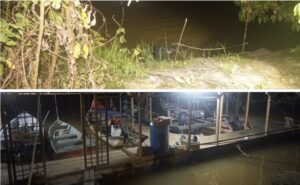KOTA KINABALU, Oct 28 — Following a recent mineral licence scandal allegedly implicating top Gabungan Rakyat Sabah (GRS) leaders, state Opposition coalition Sabah Barisan Nasional (BN) has proposed reforms to the management of Sabah’s natural resources.
Sabah Umno information chief Datuk Suhaimi Nasir said the controversy over political involvement in resource management is deeply worrying and risks undermining public confidence in the integrity of the state administration.
Sabah BN proposed three key measures to restore public trust and ensure resource management is transparent, accountable, and truly benefits the people.
“First, to enact a Sabah FPIC (Free, Prior and Informed Consent) Act to protect Native Customary Rights (NCR) land and ensure that no negotiations are conducted behind the people’s backs.
“Second, to reform the structure of the Sabah Mineral Management Board (SMM) so that it is managed by independent professionals instead of politically connected individuals,” said the Libaran MP.
The third is to prioritise Sabah-owned companies in all development and resource exploitation projects.
“Sabah needs the political courage to defend the rights of its people. Great wealth means nothing if the dignity of the state is sold out. Sabah’s land is not for sale — it must be safeguarded for future generations,” he said.
The Sabah mining scandal centres on allegations of corruption in the awarding of mineral prospecting and mining licences in Sabah.
Sabah Mineral Management Sdn Bhd (SMM) and other state agencies are alleged to have granted or facilitated lucrative mineral-exploration permits to companies linked with political insiders.
The scandal came to light via a self-proclaimed “whistleblower” businessman who recorded videos of senior politicians within the government allegedly receiving bribes in return for helping approve the licences.
Meanwhile, other media reports claim large-scale licence awards and informal deals outside formal procedures.
Two state assemblymen and a businessman have been charged in court for receiving and offering bribes.
Authorities have also denied key parts of the accusations, saying some licence claims were never formally approved or were conditional only.





